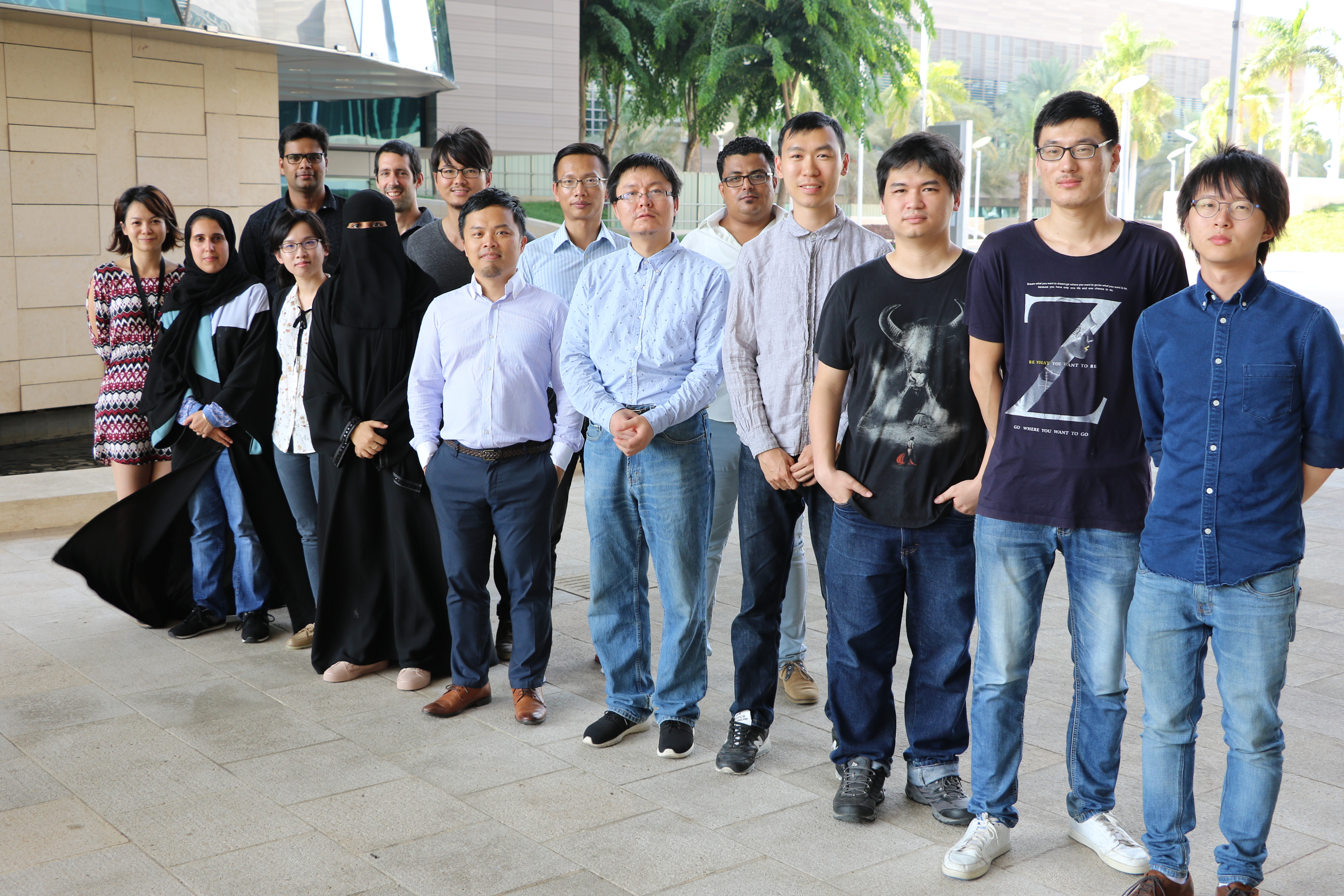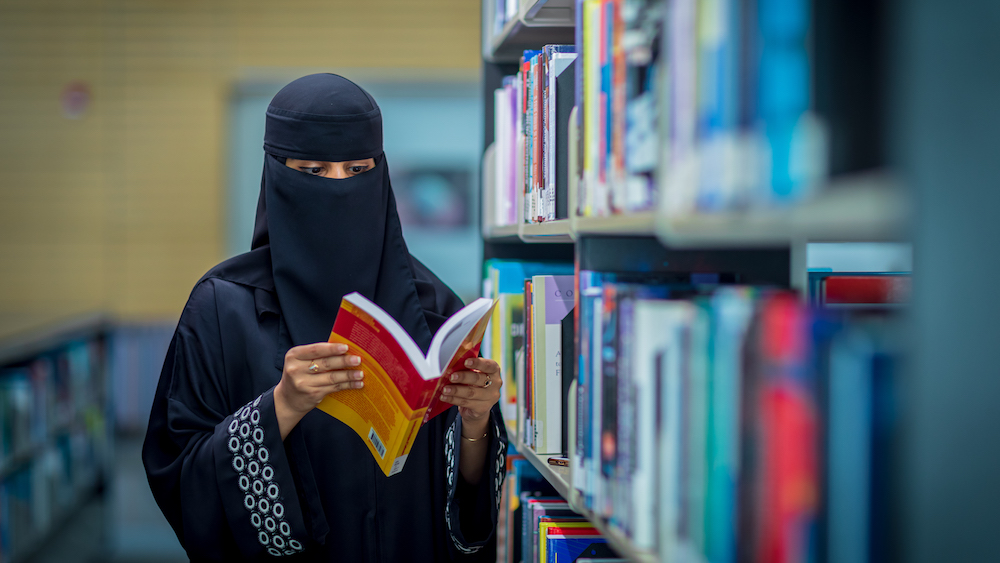KAUST Ph.D. candidate receives KACST research grant

Amal Mohammed Alamri, an electrical engineering Ph.D. candidate in Associate Professor Jr Hau-He's Nanoenergy Lab, was recently awarded a Grants Program for Universities and Research Centers (GPURC) grant from King Abdulaziz City for Science and Technology (KACST). She is pictured here with He and his research group at the University. Photo by Francesca Serra.
-By David Murphy, KAUST News
Amal Mohammed Alamri, an electrical engineering Ph.D. candidate in KAUST Associate Professor Jr-Hau He's Nanoenergy Lab, was recently awarded a Grants Program for Universities and Research Centers (GPURC) grant from King Abdulaziz City for Science and Technology (KACST). Alamri was awarded the grant for her work entitled "Fully Inkjet Printing Photodetectors MSM - 2D Materials & Perovskite Based Inks" and will receive financial support from KACST to work on her Ph.D. research at KAUST.
GPURC is a long-term strategic investment aimed at developing the scientific skills needed among outstanding graduate students to boost Saudi Arabia's position among leading countries in the fields of science, technology and innovation. This is the second time Alamri has been awarded the grant—the first time was in 2011 during her time at KACST for her work entitled "Quantum dot research as Nano-optical materials to determine the physical properties."
"It is a great honor to win such a grant, and after joining KAUST, I wanted to continue such collaboration with a respectful institution in the Kingdom. I applied again for my Ph.D. in electrical engineering to use materials as solar devices. I believe the privilege of doing my Ph.D. studies at KAUST under KACST can add a huge value to my CV and who I become tomorrow," she said.
Research goals
Prior to joining KAUST, Alamri graduated with an M.S. in physics (nanomaterials experimental) from King Abdulaziz University in 2012.
In the Nanoenergy Lab, she is working on a project that involves printed photodetectors, and specifically photodetectors that use 2-D materials and perovskite-based inks. The photodetectors are capable of detecting light and converting it into an electrical signal. This electrical signal can then be used in several electronic applications, such as in bio-medical equipment or visible light communication.
Alamri believes that her research has potential promising applications in light communications, biomedical devices and systems that need flexible devices.
"2-D materials and perovskites have attracted extensive research interests on photovoltaic (PD) devices in recent years because of excellent optical-electronic properties," she said. "The success of this project will provide a new way to achieve PD/hybrid perovskite PD/hybrid low-cost, high-performance monitoring (2-D) as devices. The main objectives of this project will be printed image detectors with flexible, thin and transparent features. I am also working on ink formula to improve its performance."

Amal Mohammed Alamri, a KAUST Ph.D. candidate, was recently awarded a Grants Program for Universities and Research Centers grant from King Abdulaziz City for Science and Technology for her work entitled ‘Fully Inkjet Printing Photodetectors MSM - 2D Materials & Perovskite Based Inks.’ Photo by Asharaf K. AbdulRahman.
"The Kingdom is particularly active in the field of energy production and utilization. This focus on evolving energy production and utilization is an activity that will ultimately be beneficial to Saudi society and humanity in general," she noted.
Alamri feels that the GPURC research grant program is an invaluable tool to aid Saudi students in pursuing world-class research globally. She also believes that the grant will help her in achieving her own long-term research goals.
"This GPURC grant will support my research to have effective solar devices for potential applications in Saudi Arabia; this my dream. Through my solar energy research, I want to engineer a product from start to finish that can assist us in our daily lives," she said.
Related stories:
- KAUST student awarded grant from KACST
- Extending collaboration at 2018 Innovation to Impact Forum
- Agreement signed for building of SaudiVax R&D Vaccine center
-
Professor Jr-Hau He admitted as a fellow of the Royal Chemistry Society (FRCS)

